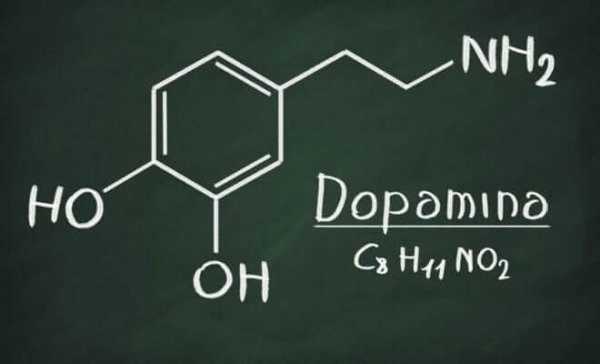(Exploring Your Mind) Addiction leads to a bond, which is basically a way of relating to the world, an object, a behavior, or a substance. This is why we say that what we know about addiction “is false” and that we should call it attachment instead.
by Staff Writer, September 30th, 2019
A hundred years ago now, drugs were banned for the first time. In this century of the “war on drugs“, countless professors and governors have told people stories about addiction. They’ve become so rooted in our minds that we believe them to be true. But should we be calling addiction attachment instead?
The American Chemical Society has changed the rules of the game. They say that an addiction to drugs, alcohol, or any other destructive substance isn’t the result of any “personal flaw”. In fact, it’s the natural result of brain chemistry and is similar to an attachment.
Several experiments have shown that what leads to addiction is a need for dopamine. This is the neurotransmitter involved a person’s “degree of happiness” (Newcombe, 2016).
Drugs go through a part of the brain called the ventral tegmental area. This part of the brain is more commonly known as the “reward center”. This is where your brain processes everything you do that makes you feel good. It’s also where your brain produces dopamine, the chemical that brings you pleasure, according to The Washington Post.
For example, someone gets addicted to cocaine because they haven’t found anything else to become addicted to. In other words, the opposite of addiction isn’t sobriety. It’s human connection.
“Addiction is perhaps a sickness of the spirit.”
-Osamu Dazai-
Buy Book Rewired: A Bold New Approach To Addiction and Recovery

The key is understanding why we act the way we do
Substances don’t necessarily make you feel good in and of themselves; the signals they send to your brain and your body do this. Some drugs can boost dopamine levels ten times above normal.
What your brain does to adapt to a dopamine overload is reduce the number of receptors it has for that specific chemical. Thus, an addict will end up needing more and more of a drug to feel good.
British author Johann Hari has also compiled some evidence about “people who live in a happy environment”. These people basically get the right amounts of dopamine in their daily lives. According to his evidence, they’re less likely to develop drug addictions (Swanson, 2015).
“Every addiction starts with pain and ends with pain.”
-Eckhart Tolle-
Buy Book The Power of Now: A Guide to Spiritual Enlightenment by Eckhart Tolle
The opposite of addiction isn’t sobriety, it’s human connection and attachment
Hari also quoted Bruce Alexander, a psychology professor in Vancouver, Canada. He states that “Addiction is an adaptation to your surroundings and is a sort of cage (Alexander, 2010).
He discovered something very odd in one of his experiments. The rats he studied that drank cocaine-laced water until they died were always alone in their cages. They had nothing to do but take drugs. Thus, he wondered what would happen if he tried to change their environment.
The Rat Park experiment
This is what led Alexander to create the “Rat Park”, which was basically a fun cage where the rats had access to colorful balls, high-quality food, tunnels to run around in, and many other rats to interact with. It was everything a rat could ever want and more.
What Alexander did was put two water bottles in the cage for them to drink from. One was laced with cocaine and the other wasn’t. All the rats started drinking from both bottles.
He noticed that all the rats that had a good life in the park didn’t like the drugged water. They generally avoided drinking it and consumed a quarter less of the drugged water than isolated rats. Not a single one of them died. The lonely, unhappy rats, on the other hand, became addicted.
The happy rats didn’t develop an addiction to drugs because they had healthier attachments to their surroundings. The unhappy rats had to form an attachment to the drugs in order to find positive stimuli.
Applying the experiment to humans
At first, Alexander believed this may have been specific to rats. But then he found out that a similar experiment was being conducted with humans: the Vietnam War.
Time magazine said that heroin use was “as common as chewing gum” among United States soldiers. According to the Archives of General Psychiatry, approximately 20% of United States soldiers developed an addiction to heroin there.

That same study stated that nearly 95% of all the addicted soldiers managed to quit. Few had to go into rehabilitation programs. They went from a terrifying cage (Vietnam) to welcoming, warm places (their homes) and didn’t want to consume drugs anymore.
Alexander argued that this discovery was a major achievement. He said that it went against the conservative idea that addiction is an act of selfishness and the liberal idea that addiction was basically a chemical kidnapping of your brain.
He said that it was an adaptation instead. Maybe the issue isn’t addiction itself but a lack of attachment and the need to latch onto something in its place.
Stillness in the Storm Editor: Why did we post this?
Psychology is the study of the nature of mind. Philosophy is the use of that mind in life. Both are critically important to gain an understanding of as they are aspects of the self. All you do and experience will pass through these gateways of being. The preceding information provides an overview of this self-knowledge, offering points to consider that people often don’t take the time to contemplate. With the choice to gain self-awareness, one can begin to see how their being works. With the wisdom of self-awareness, one has the tools to master their being and life in general, bringing order to chaos through navigating the challenges with the capacity for right action.
– Justin
Not sure how to make sense of this? Want to learn how to discern like a pro? Read this essential guide to discernment, analysis of claims, and understanding the truth in a world of deception: 4 Key Steps of Discernment – Advanced Truth-Seeking Tools.
Stillness in the Storm Editor’s note: Did you find a spelling error or grammatical mistake? Send an email to [email protected], with the error and suggested correction, along with the headline and url. Do you think this article needs an update? Or do you just have some feedback? Send us an email at [email protected]. Thank you for reading.
Source:
https://exploringyourmind.com/should-we-call-addiction-attachment-instead/

The best I’ve ever read (or watched) on reasons for addiction is anything by Dr. Gabor Mate – also from Vancouver, Canada. Type his name into YouTube along with the word addiction. He is a very articulate, erudite physician who is full of compassion for those suffering from addiction. Check him out. You won’t be disappointed. Here’s a good place to start: https://www.youtube.com/watch?v=ARyq_BtCVMo
May you be happy and healthy. :o)